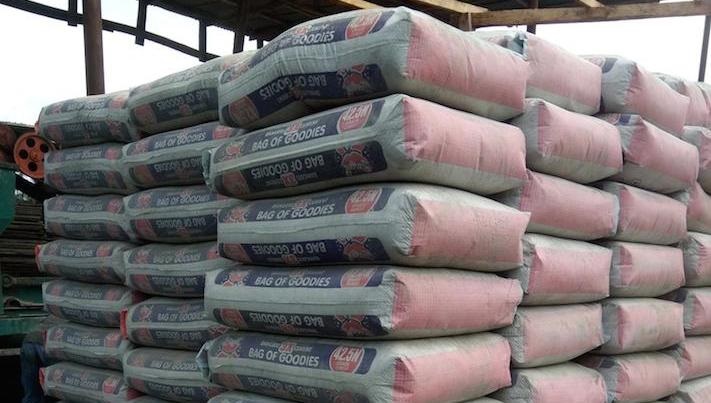Cement distributors in Lagos are predicting a rise in cement prices to levels seen earlier this year during the upcoming dry season, when demand typically increases.
A review of prices across major cement distribution outlets shows that prices have remained stable over the past four months, following intervention by the federal government and the National Assembly. Currently, a 50kg bag of cement is priced between N7,500 and N8,200.
Ms. Halimat, a major cement distributor in Ikorodu, stated, “We sell Elephant cement at N8,200 per bag, and that’s been the price for about two to three months now.
There’s been no significant difference between the price of Dangote and Elephant Cement for a while, likely due to government intervention and the rainy season. Demand is usually low during the rainy season as most construction work halts.”
Mr. Idowu, another distributor who sells both cement and general building materials, confirmed this view. He noted that although prices are stable now, they are expected to rise when the dry season arrives and construction activities resume.
“The drop in demand affects not only cement but all building materials,” Mr. Idowu said. “As construction works pick up from maybe October or November, we’ll likely see price increases. That’s how the market usually works. However, the spike earlier this year was unprecedented. I’ve been in this business for almost 20 years and hadn’t seen such a rapid increase in cement prices. We have learned from that experience.”
While some believe the current stability in cement prices is due to seasonal demand, Mr. Enuwa, another cement seller, disagrees. He attributes the reduced demand to the high prices, which he believes are beyond the reach of the average person.
“N8,000 for a 50kg bag of cement is not cheap, and that’s not a stable price,” Mr. Enuwa argued. “How many people can afford to build a house or undertake any project at that price? Last year, we sold cement for around N5,000 per bag, and it increased to about N12,000 before dropping to the current price. This fluctuation is not stability.”
Mr. Enuwa also expressed concern that the high prices might deter developers from building at the usual full scale during the dry season.
An official from the Dangote Group, who requested anonymity, stated that the opinions of cement distributors about the projected price increase are speculative. According to the official, prices are influenced by various factors, not just demand, making it difficult to predict any increase with certainty.
“What the distributors are saying is their opinion. It doesn’t mean it will happen,” the official said. “I cannot say for sure what will happen to cement prices when the dry season comes. It depends on different factors, and we have no control over some of them.”
In February 2024, Nairametrics reported a sudden spike in cement prices from around N5,000 per 50kg bag to over N10,000, causing panic in the construction industry. The federal government intervened, leading to a price drop to N8,000 after discussions led by Minister of Works, Senator David Umahi.
Prior to this hike, analysts at Cardinal Stone had projected that cement prices in 2024 would remain high due to elevated inflation, volatility in the foreign exchange market, and high operational costs. The naira’s volatile performance, starting the year trading below N1,000/$ and closing the first quarter at N1,309/$, despite reaching as high as N1,600 on the official window, has further complicated the market.
The Cardinal report also suggested that a price war between industry players, following BUA’s price reduction in October 2023, was unlikely but not impossible. In October 2023, BUA Group’s Chairman, Abdulsamad Rabiu, announced his company would peg cement prices at N3,500. However, this proved unfeasible as neither developers nor distributors could purchase at that price.
An earlier report revealed that a 130% increase in building materials has stalled housing projects nationwide, leading to a decline in jobs for builders and significant losses for developers in the real estate sector.



